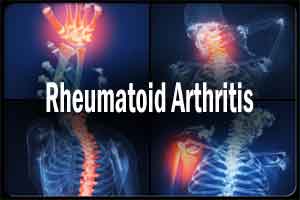- Home
- Editorial
- News
- Practice Guidelines
- Anesthesiology Guidelines
- Cancer Guidelines
- Cardiac Sciences Guidelines
- Critical Care Guidelines
- Dentistry Guidelines
- Dermatology Guidelines
- Diabetes and Endo Guidelines
- Diagnostics Guidelines
- ENT Guidelines
- Featured Practice Guidelines
- Gastroenterology Guidelines
- Geriatrics Guidelines
- Medicine Guidelines
- Nephrology Guidelines
- Neurosciences Guidelines
- Obs and Gynae Guidelines
- Ophthalmology Guidelines
- Orthopaedics Guidelines
- Paediatrics Guidelines
- Psychiatry Guidelines
- Pulmonology Guidelines
- Radiology Guidelines
- Surgery Guidelines
- Urology Guidelines
Tea, but not coffee increases risk for rheumatoid arthritis

USA: A large prospective cohort of older women found that consumption of caffeinated non-herbal tea increases the risk for incident rheumatoid arthritis (RA). The study, published in the Journal of Clinical Rheumatology, however, found that there was no association between coffee consumption and incident RA.
Rheumatoid arthritis is a chronic inflammatory disease that affects a person’s joints, causing pain and disability. It can also affect internal organs. RA is more common in older people, but there is also a high prevalence in young adults, adolescents, and even children, and it affects women more frequently than men.
Diman Lamichhane, MedStar Washington Hospital Center, Washington, DC, and colleagues evaluated whether tea or coffee consumption is associated with an increased risk of older-onset RA using the Women's Health Initiative Observational Study -is a longitudinal prospective cohort study conducted from 1993 to 1998. A total of 185 women self-reported and validated incident cases of RA were observed after 3 years of observation.
Also Read: One more reason to quit smoking- It decreases rheumatoid arthritis risk
Key findings of the study include:
- There was no increase in the hazard ratio for incident RA in those participants who drank coffee compared with those who did not.
- The amount of coffee consumed and the method of preparation (caffeinated/decaffeinated; filtered/unfiltered) also did not alter the risk of incident RA.
- There was a positive association of incident RA and caffeinated tea consumption in the trend test.
- When assessing any caffeinated tea consumption versus no tea consumption, the hazard ratio for incident RA was 1.40.
Also Read: Rheumatoid arthritis leads to sexual dysfunction in females
" In a large prospective cohort of older women, there was no association between coffee consumption and incident RA. A small association between daily caffeinated, nonherbal tea consumption and incident RA was found," concluded the authors.
For detailed study log on to 10.1097/RHU.0000000000000788

Disclaimer: This site is primarily intended for healthcare professionals. Any content/information on this website does not replace the advice of medical and/or health professionals and should not be construed as medical/diagnostic advice/endorsement or prescription. Use of this site is subject to our terms of use, privacy policy, advertisement policy. © 2020 Minerva Medical Treatment Pvt Ltd